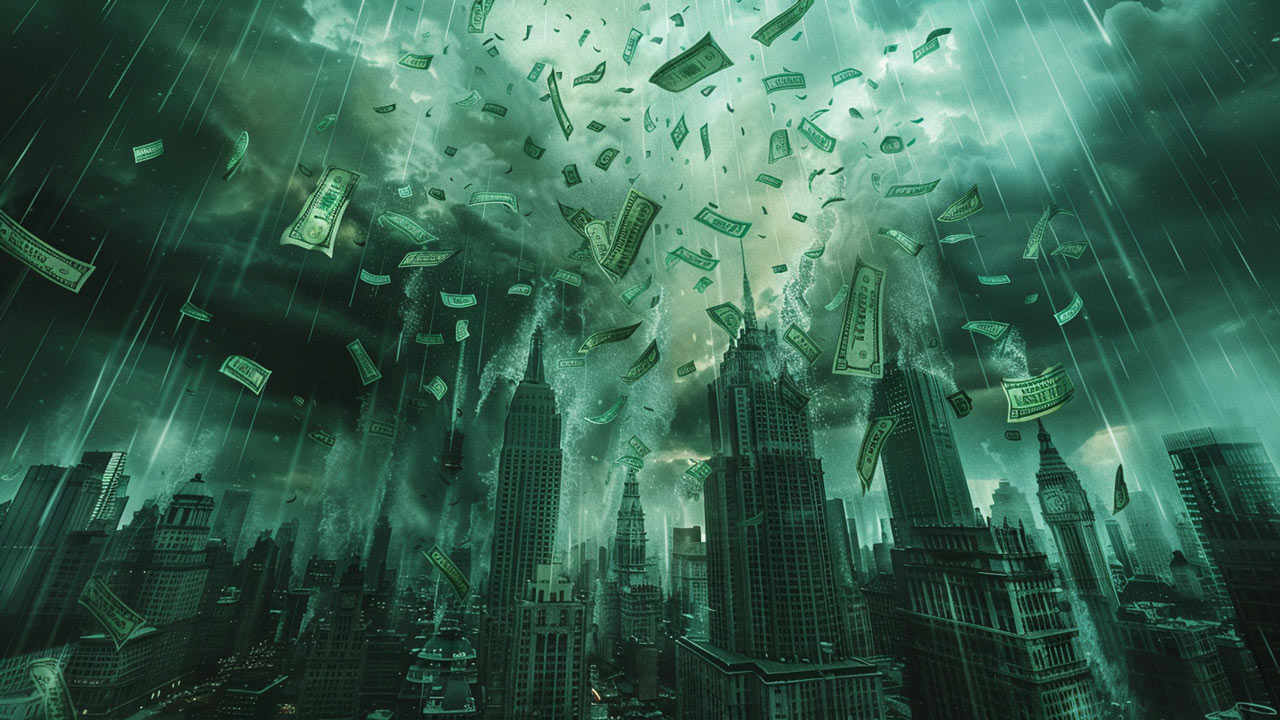The Stimulus Trap
Peter Schiff’s latest commentary looks at what happens when a country becomes addicted to easy money, and explains why the Fed will keep pumping money the US economy until a currency crisis forces it to stop.
For years we have been warned by Keynesian economists to fear the so-called ‘liquidity trap,’ an economic cul-de-sac that can suck down an economy like a tar pit swallowing a mastodon. They argue that economies grow because banks lend and consumers spend. But a ‘liquidity trap’ convinces consumers not to consume and businesses not to borrow. The resulting combination of slack demand and falling prices creates a pernicious cycle that cannot be overcome by the ordinary forces that create growth, like savings or investment. They argue that a liquidity trap can even resist the extraordinary force of monetary stimulus by rendering cash injections into useless ‘string pushing.’ Some of these economists suggest that its power can only be countered by massive fiscal stimulus (in the form of a world war or other fortunately timed event) that leads to otherwise unattainable levels of government spending.
Putting aside the dubious proposition that the human desire to strive and succeed can be permanently short-circuited by an economic contraction, and that modest price declines can make penny pinchers of us all, the Keynesians have overlooked a much more dangerous and demonstrable pitfall of their own creation: something that I call ‘The Stimulus Trap.’ This condition occurs when an economy becomes addicted to the monetary stimulus provided by a central bank, and as a result fails to restructure itself in a manner that will allow for robust, and sustainable, growth. The trap redirects capital into non-productive sectors and starves those areas of the economy that could lead an economic rebirth. The condition is characterized by anemic growth (masked by the delivery of perpetual stimulus) and deteriorating underlying economic fundamentals.”
Click Here to Continue Reading the Full Commentary
Follow us on Twitter to stay up-to-date on Peter Schiff’s latest thoughts: @SchiffGold
Interested in learning about the best ways to buy gold and silver?
Call 1-888-GOLD-160 and speak with a Precious Metals Specialist today!



 Innovation has a silent killer… a scourge that America has aided and abetted for over a century. Innovative activity is the backbone of the economy. Because of Google, Honda, and Netflix, life is easier for billions of people around the globe. A Stanford study found that up to 85% of economic growth is due to innovation. But what if all […]
Innovation has a silent killer… a scourge that America has aided and abetted for over a century. Innovative activity is the backbone of the economy. Because of Google, Honda, and Netflix, life is easier for billions of people around the globe. A Stanford study found that up to 85% of economic growth is due to innovation. But what if all […] In 2009, 140 banks failed, and a recent report from financial consulting firm Klaros Group says that hundreds of banks are at risk of going under this year. It’s being billed mostly as a danger for individuals and communities than for the broader economy, but for stressed lenders across America, a string of small bank failures could quite […]
In 2009, 140 banks failed, and a recent report from financial consulting firm Klaros Group says that hundreds of banks are at risk of going under this year. It’s being billed mostly as a danger for individuals and communities than for the broader economy, but for stressed lenders across America, a string of small bank failures could quite […] Cocoa prices have dumped since rocketing to a dramatic peak last month as an El Nino cycle winds down and traders rush out of the illiquid market. For now, depreciating fiat currencies are still keeping the cocoa price still far above its 2023 levels. Coffee has had a similar rise and subsequent correction — but now, inflation and other factors are conspiring to […]
Cocoa prices have dumped since rocketing to a dramatic peak last month as an El Nino cycle winds down and traders rush out of the illiquid market. For now, depreciating fiat currencies are still keeping the cocoa price still far above its 2023 levels. Coffee has had a similar rise and subsequent correction — but now, inflation and other factors are conspiring to […] California’s government bet that they knew better than the free market. And now millions are paying the price. The story begins in 1919, when the city of Berkley, California instituted legislation setting aside districts that would only allow the construction of single-family housing. The idea spread, and soon much of California’s urban areas had adopted the zoning policy. Today, approximately 40% of the total land in Los Angeles is […]
California’s government bet that they knew better than the free market. And now millions are paying the price. The story begins in 1919, when the city of Berkley, California instituted legislation setting aside districts that would only allow the construction of single-family housing. The idea spread, and soon much of California’s urban areas had adopted the zoning policy. Today, approximately 40% of the total land in Los Angeles is […] The yen was once known as a safe-haven currency for investors to protect themselves when broader markets are shaky or other currencies are dropping, but those days are numbered. A stable government and consistent (and low) interest rates have been some of the driving factors, but it’s the unwinding of that ultra-low interest rate policy that will be the yen’s “safe […]
The yen was once known as a safe-haven currency for investors to protect themselves when broader markets are shaky or other currencies are dropping, but those days are numbered. A stable government and consistent (and low) interest rates have been some of the driving factors, but it’s the unwinding of that ultra-low interest rate policy that will be the yen’s “safe […]
Leave a Reply